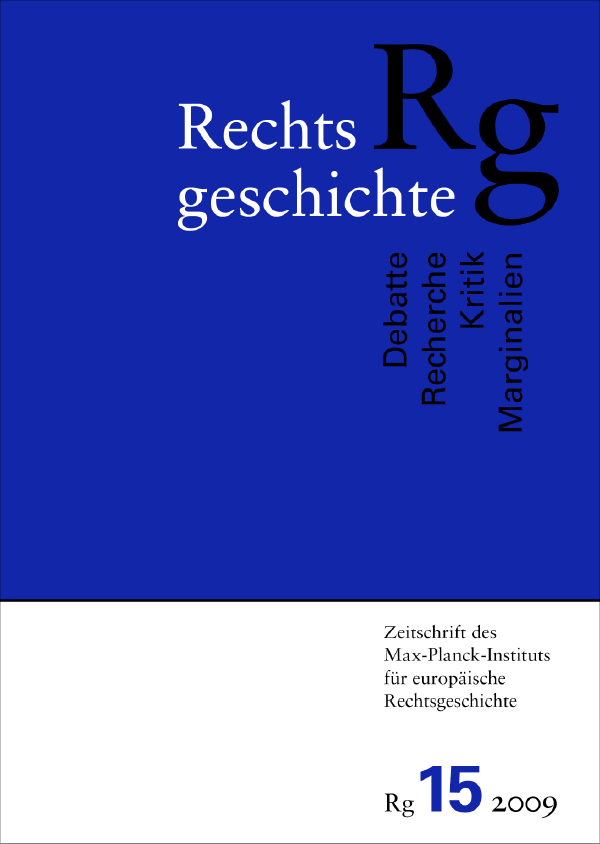Staatliche Kapitalhilfe für Unternehmen
Nationalökonomische Konturierungen polizeiwissenschaftlicher Lehren in der ersten Hälfte des 19. Jahrhunderts
DOI:
https://doi.org/10.12946/rg15/126-144Abstract
A wide conception of state administration would also include the science of economics. With the triumphal progress of the doctrine of Adam Smith from the end of the 18th century this part of state administration also came within the sphere of influence of the national economy. This formed a theoretical partial discipline, which subsumed the determinants of the development of wealth. This theoretical part, the pure theory of political economy, contained those principles which should determine the practical part, the practice of economics. On the other hand, the theory of political economy considered practice in the process of the drafting of economic postulates. Both partial disciplines interacted and influenced the doctrines of state administration.
This process will be described by means of writers influenced by the work of Adam Smith (Sartorius, Kraus, Lüder, Soden, Jakob, Lotz, Rau) and using the example of governmental financial support for private enterprises. All these authors shared the doctrine of the absence of state intervention. But the state was nevertheless considered responsible for the prosperity of the country and had to intervene if private means failed and if the public welfare was to be protected. Based on these assumptions, criteria for the justification of state assistance were developed. Financial support was acceptable as sponsorship for innovation, as temporary aid in times of crisis and as an instrument of socio-political stabilization. The same types of financial aid were practiced by government.
In the administration of states based on the rule of law (Robert von Mohl), national-economic and judicial principles moved in the same direction. The justifications of financial aid were concordant with the economic justifications. Thus the shaping of the national economy took on a juridical character.
Downloads
Veröffentlicht
Zitationsvorschlag
Ausgabe
Rubrik
Lizenz
Copyright (c) 2009 Autor/in

Dieses Werk steht unter einer Creative Commons Namensnennung - Nicht-kommerziell - Keine Bearbeitung 3.0 International -Lizenz.





